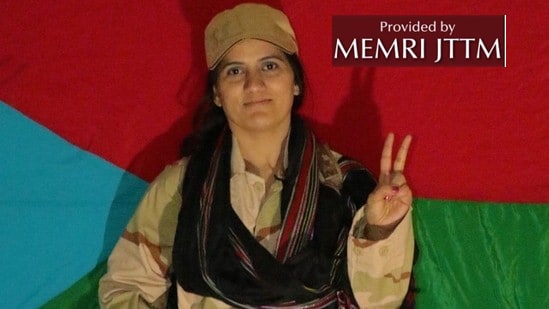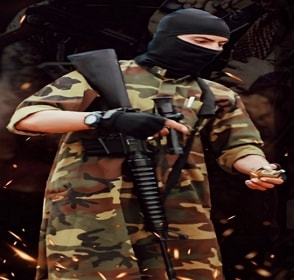The following report is now a complimentary offering from MEMRI's Jihad and Terrorism Threat Monitor (JTTM). For JTTM subscription information, click here.
In the afternoon of April 26, 2022, a burqa-clad woman blew herself up near a van close to the Confucius Institute, a Chinese language teaching center at Karachi University. According to Karachi counterterrorism police, four people, including three Chinese nationals and their Pakistani driver, were killed and four others, including two Chinese nationals, were injured in the attack. Among the dead were the director of the Confucius Institute Huang, teachers Guiping, Ding Mupeng, Chen Sai, and their Pakistani driver Khalid.[1]
The woman, reportedly named Shari Baloch, was a member of the Baloch Liberation Army (BLA), one of the main secessionist terror organization active in Pakistan's Baluchistan province, where Baloch nationalist groups such as the BLA are active as well as jihadi groups like the Tehreek-e-Taliban Pakistan (TTP) and the Islamic State (ISIS).

BLA's first woman suicide bomber Shari Baloch aka Bramsh (source: Twitter)
In a statement, BLA spokesman Jeeyand Baloch said the attack was carried out by a woman named Shari Baloch, killing three Chinese nationals and their Pakistani driver on April 26. Such suicide attacks, carried out by non-jihadi secessionist organizations fighting from the independence of Baluchistan from Pakistan, are rare in Pakistan.
"Majeed Brigade of the Bloch Liberation Army accepts responsibility for today's self-sacrificing attack on the Chinese in Karachi. The mission was carried out by the first female fidayee [i.e., suicide bomber] of the Brigade. Fidayee Shari Baloch alias Bramsh today added a new chapter in the Baloch resistance history," Jeeyand Baloch said in English and Urdu statements disseminated online.
The BLA's Majeed Brigade was established in 2011 and was named after Majeed Lango, a member of Baloch Students Organization (BSO) killed in a failed attack on former Pakistani Prime Pinister Zulfiqar Ali Bhutto in Quetta, the capital of Baluchistan, in 1975. In 2018, the BLA's Majeeb Brigade attacked a truck of Chinese engineers in Dalbandin in Baluchistan, injuring five people, including three Chinese nationals. In November 2018, the group attacked Chinese diplomats in an attack in which four attackers were killed. In 2019, the Majeed Brigade attacked the Pearl Continental Hotel in Gwadar, wherein five people were killed. Similarly, the group asserted responsibility for attacks on the Karachi Stock Exchange.

BLA's official statement released on social media
It is believed that, despite their ideological differences, the Baloch separatist groups have joined hands with the TTP against the Pakistan government. In February 2022, then Interior Minister of Pakistan Sheikh Rashid said that the TTP may be supporting Baloch separatist organizations in its attacks against the Pakistani security forces.[2] In 2018, militant outfits active in Baluchistan formed an alliance, Baloch Raaji Ajoi Sangar ("Baloch National Freedom Front," BRAS),[3] to target Chinese interests in Pakistan.
[1] Twitter.com, April 26, 2022; Urdu.nayadaur.tv, April 26, 2022.
[2] Minutemirror.com.pk/ttp-backing-baloch-militants-behind-recent-terror-attacks-sheikh-rashid-25494, February 4, 2022.
[3] Thebalochistanpost.net/2018/11/baloch-armed-organisations-form-umbrella-organisation, November 10, 2018.
The full text of this post is available to subscribers.
Please login or register to request subscription information from MEMRI









